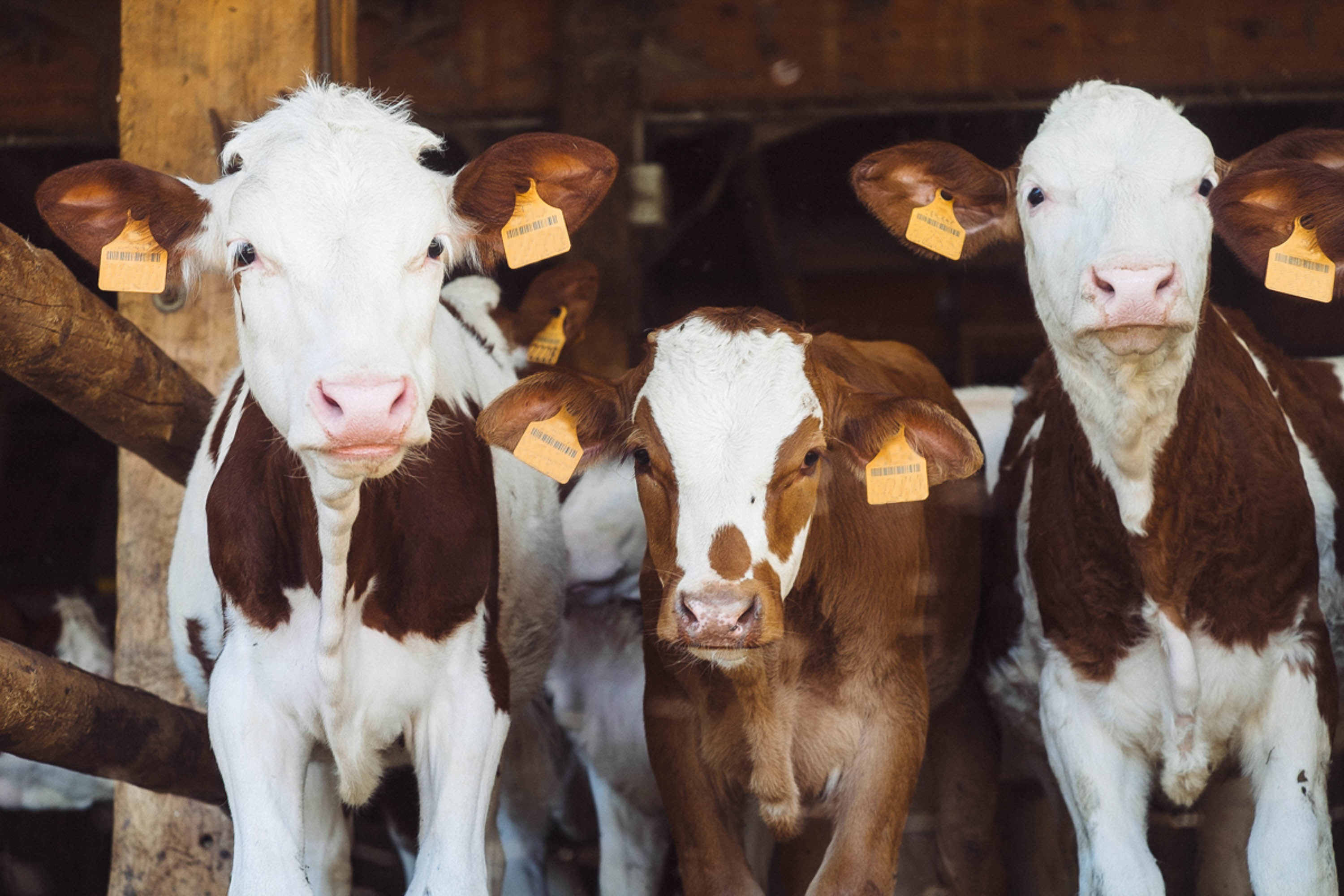Large amounts of antibiotics are used in calves. To reduce antibiotic use, we need healthy calves. A number of projects funded by the FSVO are identifying the reasons for high antibiotic use in calves, as well as possible solutions for keeping calves more healthily.

Antibiotic resistance in bacteria is a growing problem. Resistance means that the antibiotics available are no longer effective. High antibiotic use can encourage the development of bacterial resistance, which is why it is important to minimise the use of antibiotics. To achieve this, we need calves that are as healthy as possible. The FSVO funds research projects in this area.
What does calf health depend on?
If calves become weak and sick, the cause may lie in the management system. Calves are often taken from their farm of birth at a very young age and transported to a rearing facility where they are mixed together in groups. At this stage, their immune defences are not yet well developed. Transport and the new surroundings mean stress for the young calves. Stress weakens them and increases the risk of infections passing between animals.
How can calf health be improved?
Calf health can be improved in various ways. Calves should be as healthy as possible on arrival at the rearing facility. To keep them healthy once there, the housing conditions must be ideal. This includes a good barn climate, good hygiene, suitable feeding and low stress. The animals can also be specifically vaccinated to protect against diseases.
The expense and effort required to maintain calf health must be economically viable for both farmers and veterinarians.
Why is the FSVO involved and who are the participants?
Human and animal health are closely interconnected and diseases can be transmitted both directly and indirectly (for example, through the consumption of meat).
In addition, antibiotic resistance affects both humans and animals. The FSVO and other federal offices are committed to ensuring the long-term effectiveness of antibiotics. They have jointly developed the Swiss Antibiotic Resistance Strategy (StAR) (in German).
The FSVO also works with a number of external agencies. These include the Vetsuisse Faculty in Bern and Zurich, the Research Institute of Organic Agriculture (FiBL) and the School of Agricultural, Forest and Food Sciences (HAFL).
"Open-air calf" project: Fewer antibiotics can be used
(in French)
The projects
This study on the effects of management practices evaluated the effects of transport, housing conditions and antibiotic treatments on calf health. In addition, samples were used to test sensitivity to antibiotics.
The findings were used as a basis for drawing up recommendations for improving calf health. These are mainly measures to prevent respiratory diseases: the buying-in of calves should be reduced to a minimum; only healthy calves should be mixed in groups; transport should be short and as stress-free as possible; sick animals must be separated from the group. A suitable barn climate and good hygiene are also important. (1.16.10)
This study aims to develop a strategy that will prepare veal calves as fully as possible before they leave the dairy farm. The goal is to work together with relevant parties to develop a package of measures that can be easily implemented.
In a first step, milk producers, veal farmers, veterinarians and other stakeholders were surveyed to assess problem awareness and potential strategies. In a second step, the resulting measures were tested in a field trial: two groups of calves were compared in terms of performance, health, mortality and medication use. The non-control group was treated according to the “ImproCalf strategy”. (1.16.08)
This project aims to develop incentives to encourage both farmers and veterinarians to use fewer antibiotics. This would require a re-orientation of veterinary activity in the farm animal sector. For example, there should be a stronger emphasis on veterinary advice and it should be chargeable. (1.17.06AB)
The aim of this ongoing project is to develop a method for measuring and recording the barn climate. The results should provide an important basis for building and operating veal calf barns that are animal-friendly and promote health. (1.17.07AB)
A field study tested the effects of different vaccination programmes on the health of calves on Swiss fattening farms. The findings will serve to minimise the use of antibiotics.
The study showed that targeted vaccination on the dairy farm has positive effects on health in the rearing facility. Vaccination shortly after birth is being studied further in the pilot project
"KGD-Tränker" (in German). (1.17.08)
Last modification 21.11.2022




